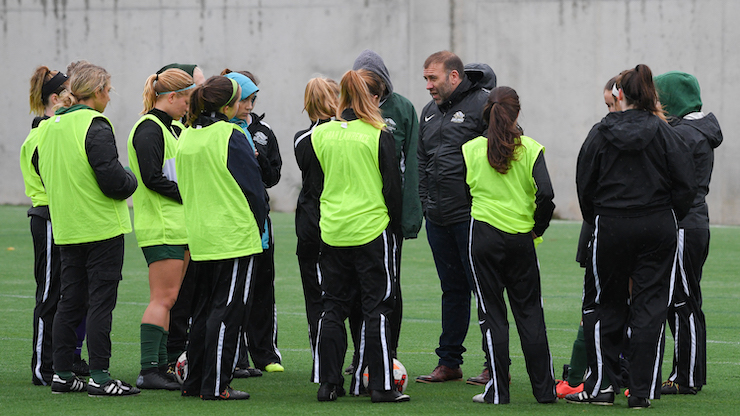Making an Impact in Collegiate Soccer
Grillo at SLC: Bringing the Beautiful Game to The Liberal Arts
NCAA Women’s Soccer DIII Spotlight on Sarah Lawrence College – Blending the values of the world’s greatest sport on a campus with less than 1,400 undergraduates.
College Soccer News: Maurizio Grillo is the Head Women’s Soccer Coach at Sarah Lawrence College. Just 30 minutes north of New York City, Sarah Lawrence College, or as it is more commonly referred, SLC, is an amazing Liberal Arts college with a very low student-to-faculty ratio.
Grillo, who hold a USSF B licenses as well as several others, is responsible for furthering the world’s beautiful game in the midst of an environment focused on intellectual and creative pursuits. In many ways, it is the perfect surrounding for balancing the virtues of the team with individual development.
Nicknamed the Gryphons, the Women’s Soccer team plays in the Skyline Conference, proudly wearing their green and white college colors.
SoccerToday Interview with SLC Head Coach Maurizio Grillo
Diane Scavuzzo: What are your goals for the SLC Women’s soccer program?
Maurizio Grillo: Sarah Lawrence College is a premier destination for academia, personal growth, and customized education — it is my goal to continue to grow the soccer program to achieve the same high level of standards that students experience academically throughout their day on campus.
That means creating a team that’s strong, both technically, emotionally and has grit — the courage and determination to persevere. These skills are needed to thrive in the classroom and excel on the field.
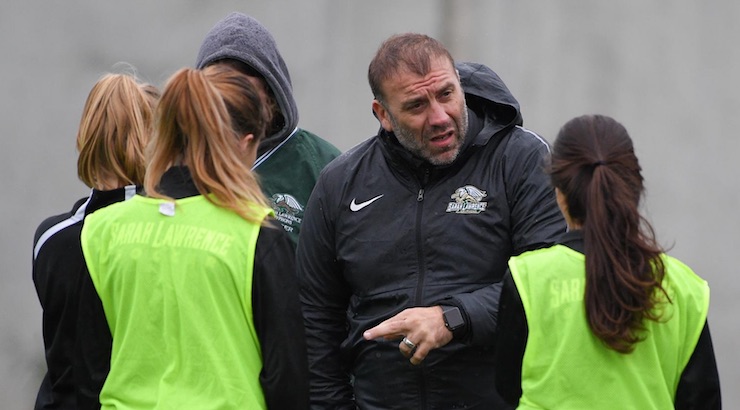
Diane Scavuzzo: As a collegiate soccer coach, what is your biggest challenges?
Maurizio Grillo: As a D3 coach, there are a number of restrictions on how we can operate. While I appreciate the rationale for these restrictions are for good reason, there are times when regulation can stand in the way of actually doing what’s best for the players and team.
For example, during the off-season, I can’t hold any trainings or field time. This means that the entire experience of building a cohesive team must fit into a few weeks.
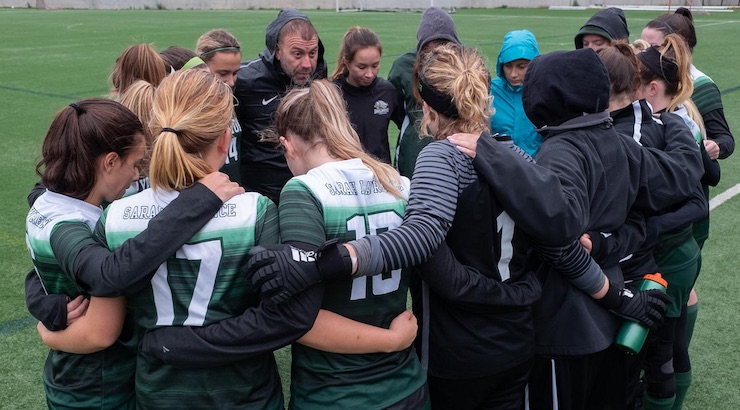
Diane Scavuzzo: How successful is the program at SLC? What makes it unique?
Maurizio Grillo: Our first club soccer team was formed in 2011 and in 2014 we rolled up our sleeves and joined NCAA. In the first 4 years of being a member of the Skyline Conference, we reached our first post-season conference berth and achieved a first-round win.
Without a doubt, it has been an exciting and fast ascent. I feel that being so “young” is in part the reason for our success.
There is an element of unpredictability in our games that is definitively difficult to handle.
Our players will still step forward on the field delivering a style of soccer that is unpredictable and enriched by the same openness and desire for learning and to be challenged they have in classrooms.
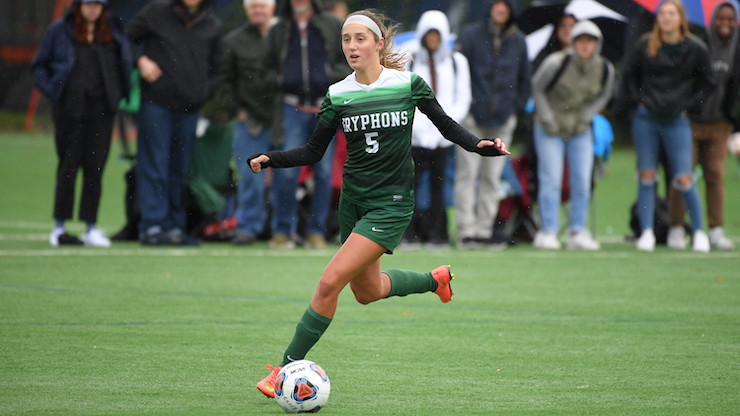
Diane Scavuzzo: When you are recruiting players, what do you look for? How would you describe a SLC student-athlete?
Maurizio Grillo: Character and attitude will always be the main differentiators for me. SLC has so much to offer, every class, every club, every group on campus is integral to who we are and each play a key role in forging our leaders.
I don’t want an athlete that gives up on other passions so that she can invest more time and energy on soccer.
I want one that will find a way and will manage to continue to pursue all of her passions!
Diane Scavuzzo: Do you recruit players from the DA and ECNL? Do you see a difference in their training?
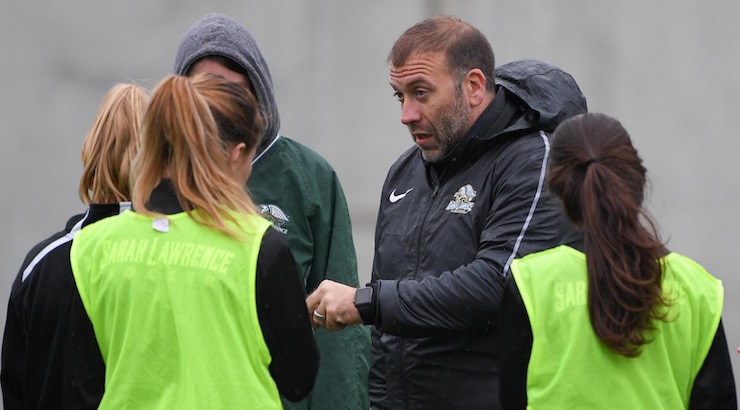
Maurizio Grillo: I recruit players from both the DA and ECNL.
I am not ready to say I have seen a quantifiable difference.
Some might argue that DA is a bit more technical and ECNL can develop a better athlete, but the truth is that both are more than capable to develop players who can compete in all divisions and when I introduce said athlete in my team contest, I don’t see much of a difference from technical or tactical perspective.
Diane Scavuzzo: How do you define success?
Maurizio Grillo: Picture a team where a sense of family, respect, and unity is unmovable and at the core of everything we do, a program where long-lasting relationships are formed.
Everything else, every win or championship is irrelevant.
Diane Scavuzzo: What is your coaching philosophy?
Maurizio Grillo: Student-athletes thrive in an environment that is both challenging and encouraging. It is my responsibility to create such an environment by providing realistic and repetitive drills to help build confidence and skill mastery.
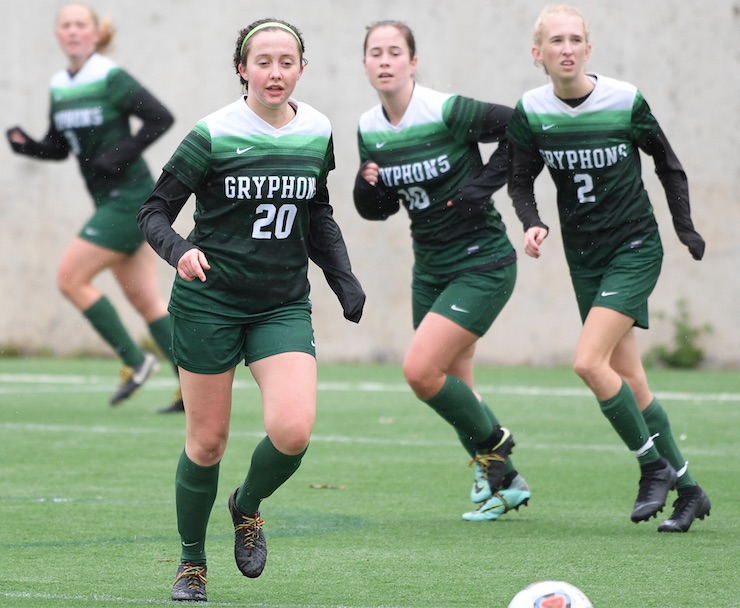
Diane Scavuzzo: When I attended SLC, there were no soccer teams, no mascot. Where does the name Gryphons come from?
Maurizio Grillo: This year we are celebrating the 20th anniversary of our mascot! The Gryphon, the king of all beast, a mythological animal so powerful that it possesses the intelligence of a eagle and the strength of a lion.
Strength in knowledge… it doesn’t get any more Sarah Lawrence than that.
Diane Scavuzzo: How can SLC encourage more attendance at their home soccer games?
Maurizio Grillo: Attendance at games as improved and I must admit it is certainly related to the good results the team has achieved in the last few years.
The athletic department does a great job offering shuttle services to the games and advertising as much as possible but with that being said, I would love to see an overall increase in “school pride” across campus, maybe with a few banners and flags here and there, some more sport related gadgets at the campus store would also be great.
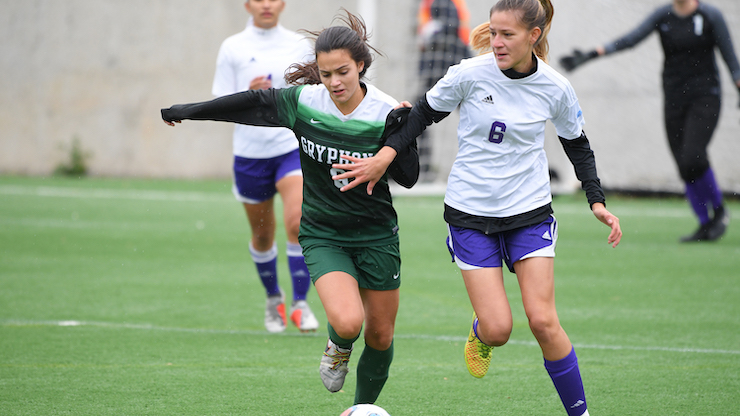
Diane Scavuzzo: Of course, you want to celebrate your team and the sport. When did you become in involved in soccer?
Maurizio Grillo: I first became involved in 1999 when I was volunteering in Ann Arbor, Michigan at local parks and my first official coaching assignment was in 2003 back home in Italy with a team that represented our neighborhood at the village tournament.
Talking about full dirt — no grass field — and nets kept together with an endless amount of handmade knots and sewing cord. Never looked back since.
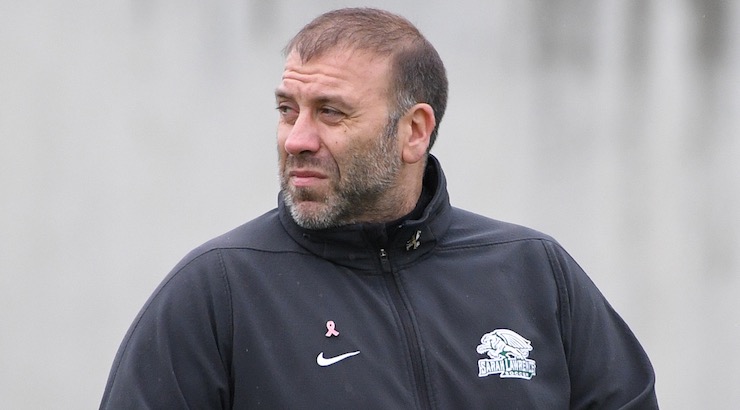
Diane Scavuzzo: What is your background?
Maurizio Grillo: I was born and raised and lived in Italy until I was 23 and played on local soccer teams at ok-ish level — but nothing more. I was a “Libero” a soccer position now obsolete. And no… I DO NOT focus on defending!!
Diane Scavuzzo: How has soccer changed, if it has since you became involved?
Maurizio Grillo: It has and a great deal in my opinion.
Speed as a starting argument, the game today is played at a much higher tempo and a lot faster, athletes have become faster mentally, physically and technically.
I am not saying that today’s game is better, but merely that it is different.
My jaw drops watching a highlight video of George Best or Baggio just as much as it does watching Ibrahimović, to name a few.
Updated June 2019

